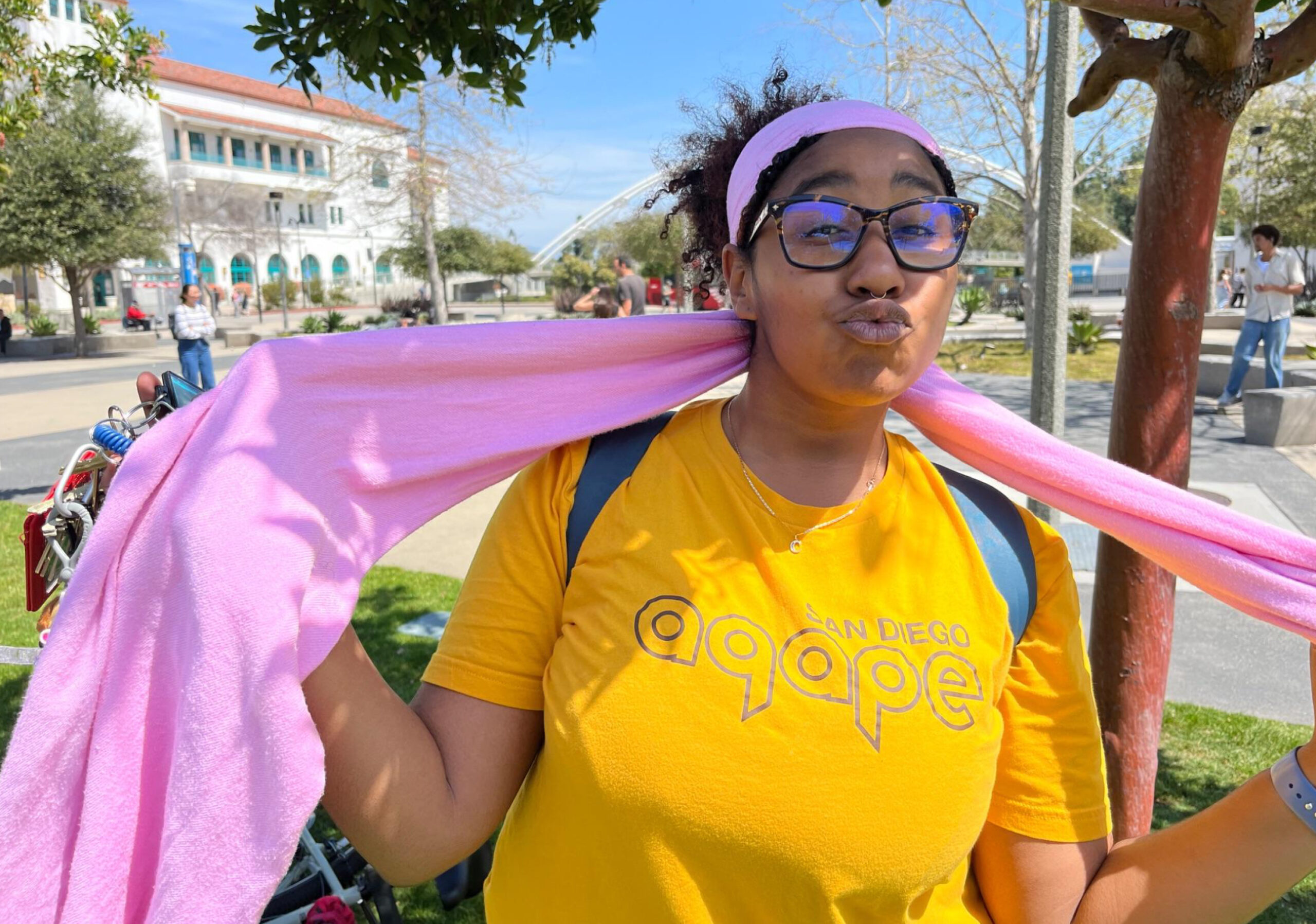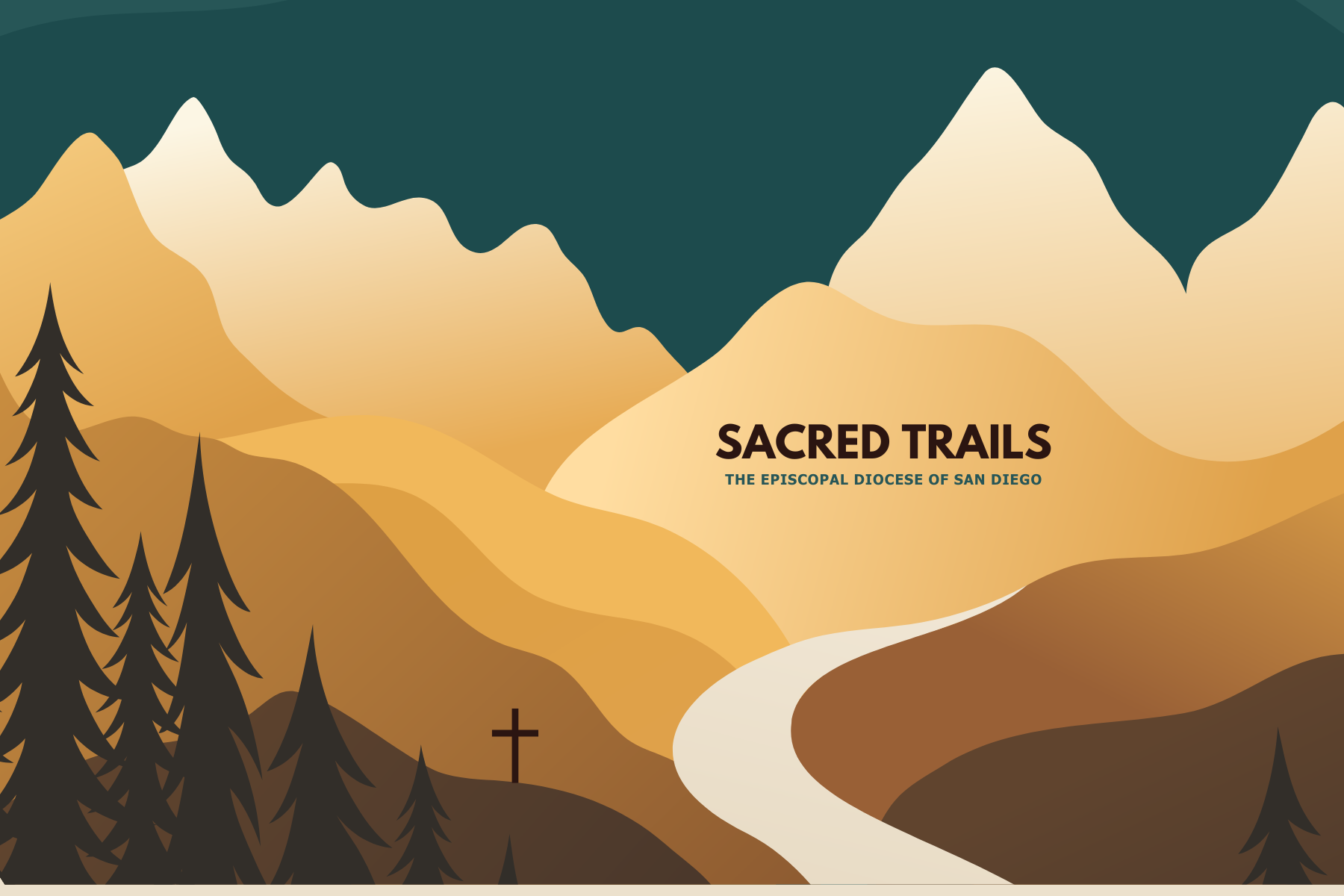How to get Involved | Emerging Communities Cohort | Schedule
In the Episcopal Diocese of San Diego (EDSD), emerging communities are Episcopal expressions wherever there is yet to be an Episcopal congregation. They are new communities primarily intended for those who would not otherwise participate in a traditional congregation due to language, culture, geography, etc. While each community will look different due to their context and calling, each will have three traits:
Missional: They demonstrate Christ’s good news by routinely reaching out to others through service, justice, and evangelism.
Spiritual: They express the Christian faith by engaging in practices rooted in our tradition, such as prayer, spiritual song, and Bible study.
Relational: They are of a size and scale in which mutual relationships are developed, and authentic community is cultivated.
For further explanation of Emerging Communities, see EDSD’s Canons and Constitution II.2.04(b)
 When starting an emerging community, we:
When starting an emerging community, we:
Discover who we are CALLED to build a community with.
LEARN from others in our context.
SEEK out wisdom in our neighborhood.
GATHER the gifts of others around us.
EXPERIMENT with new ways of building community as soon as possible.
If you are interested in learning from others across our diocese starting emerging communities, join our online discussion group:
If you are ready to start an emerging community, join our cohort! Find details below.
Clergy and lay people from across the diocese who are nurturing or dreaming of an emerging community are invited into a collaborative space for mutual support, encouragement, and visioning. These monthly meetings are designed to be sensitive to the context in which each of us are conducting our ministry. Whether you are leading church plants, campus missions, new Spanish language services, or another emerging community, participation in the cohort will help expand possibilities for individual growth and provide accountability in achieving the goals of your new community.
The emerging community cohort is structured in an 10-session cycle. The cycle includes an initial session where participants will meet with Bishop Susan, and each other. The following sessions are 1.5 hours in length and are held virtually using Zoom video conferencing. Each meeting will begin and end with prayer and include reflection questions, group discussion, and action steps review. A cohort will culminate its journey with an in-person potluck to celebrate the group’s accomplishments.
The first cohort will start this May. Specific dates and times, as well as registration coming soon!
Orientation & Meet with the Bishop – June 3, 2024
In our first meeting together, Bishop Susan will share her “Mission Frame” which explores three questions: Who are we? Who are our neighbors? What is God’s mission through the church? Coming out of this meeting, each participant is expected to read her book God Gave the Growth before the next meeting (copy provided).
Adopting Missional Habits – August 1, 2024 at 12:30 pm
Sri Lankan pastor D.T. Niles wrote, “Evangelism is just one beggar telling another where to find bread.” Missional work begins with an awareness of God’s work in your life and the world around you before helping others do the same.
Reframing Failure – September 5, 2024 at 12:30 pm
Failure is not an option; it’s mandatory. One study found that only 68% of new communities remained in their fourth year. The question is not whether we will fail but what we do with failures. If we choose, failure can be a classroom rather than defeat. When fear becomes something to learn from, we’re less afraid and less likely to avoid the risks we need to take.
Engaging Your Context – October 3, 2024 at 12:30 pm
In Luke 10, Jesus sends out the disciples in a manner that leaves them exposed and vulnerable, dependent upon those they are commissioned to announce God’s peace to. This requires trust. And, yet, the available data tells us that public trust in religious leaders and the institutions they represent has plummeted. Engaging your ministry context in today’s context will require developing trust with your neighbors as they are increasingly convinced that you have their goodwill in mind.
Meeting New People – November 7, 2024 at 12:30 pm
Evangelism is often considered a dirty word in contemporary culture and yet it is a critical practice for starting new communities. It implies that we are meeting new people and inviting them to partner with us to start a new community. For Christians, evangelism is naming and identifying what God has done and is doing. We do not create good news so much as we identify what God has done. Just as Adam participates in the creation narrative in Genesis 2:19 by naming that which God has made good, we too are invited to identify that which God has done and is doing.
Gathering A Community – January 9, 2025 at 12:30 pm
More important than answering “Where,” “When,” “How,” or “What” in regards to gathering a new community together is answering the question, “Who?” When you are clear about who it is you are forming a new community with the logistics tend to come much easier. Second only to “Who” is the question “Why?” When you are clear what this community exists for, you can tell a compelling story about it.
Retaining New Members – February 6, 2025 at 12:30 pm
One of the greatest distractions to generating retention in a new community is fretting over who is not interested. You must be focused on who is saying “yes” to what you are offering rather than those saying “no.” Who keeps showing up? Very quickly a new faith community has to allow the story of the planter into the story of the community forming—a culture is beginning to take shape.
Growing A Community – March 6, 2025 at 12:30 pm
The key to growing a community is giving it away. When a leader begins their work they are responsible for everything from sermons to sweeping. It can be easy to get accustomed to this but it offers a certain level of control. It’s also a bottleneck that can prevent growth. Growth comes when we discover the gifts of the head, heart and hands of those showing up and empower them to contribute to your collective thriving.
Funding A Community – April 3, 2025 at 12:30 pm
Determining the amount of financial contributions you can expect in a new community is not the difficult part. The hard part is asking for money. It is important to be reminded that fundraising is a skill, not an inherent gift. In other words, everyone can get good at it if they practice.
Celebration of Our Work (In-Person–TBD) – May 1, 2025 at 12:30 pm
EMERGING COMMUNITY CONCEPTS & EXAMPLES
Emerging communities represent diverse and evolving groups within or at the periphery of our traditional church ethos. These communities may differ significantly from our established congregations in terms of ethnicity, socio-economic status, cultural background, or lifestyle, but their faith, passion, and mission match our Episcopal expression. This outreach is not only a matter of growth but also a reflection of the church’s mission to embody the love of Christ. What follows are emerging community ideas, examples, and resources:
Community College, Technical or Trade School, and University
The years following high school graduation are full of significant life changes, all within a relatively short time. Whether a graduate starts college or a job, it is a critical stage in life where the Church can be a support community.
Public Schools
Each church within the Episcopal Diocese of San Diego is a short distance from an elementary, middle, or high school. Most are within 4 miles of a Title 1 public school. Neighboring schools are full of students and families who may be seeking a faith community. These schools might need reading buddies, after-school tutors, and more. Volunteering in this way can build relationships while helping students in your community improve test scores and education outcomes. While direct Christian formation offerings during the school day are prohibited by law, sharing God’s love with students and their families is an opportunity for all congregations. Gracious hospitality, gentle invitation, and a network of support are gifts that we have to share.
Head Start programs
Several EDSD congregations host Head Start programs on their campuses. These federally funded programs offer qualifying families no-cost early childhood and family education. While direct Christian formation offerings during the school day are prohibited by law, sharing God’s love with children and their families is an opportunity for all attached congregations. Gracious hospitality, gentle invitation, and a network of support are gifts that we have to share.
Senior Living Communities
These are age-restricted residential communities for seniors at various income levels and medical care needs. Residents may experience higher levels of social isolation and opportunities for fellowship, formation and worship within their communities are often welcome.
Chapparal Chapel – Sacred Trails
Sacred Trails provides the opportunity for those who connect best with God in nature. Sacred Trails takes discipleship out of our churches and into the wild. MORE
Rhythms of Grace
This unique approach to worship and formation is designed to meet the spiritual needs of children and families with special needs. MORE
Border Church
Many families across our region are separated by the border between the United States and Mexico. Recognizing that something deeply spiritual and relational was happening along the border between separated people, since November 2011, people have gathered on both sides of the fence each Sunday afternoon to share communion, conversation, and meals. MORE
EMERGING COMMUNITY STORIES

Sharing Jesus One Pizza Slice at a Time
We are here because Jesus invites us to bring rest to the weary and food to the hungry. Both apply to SDSU students. College is a transformative time. College students […]

Let’s Talk Lay Licensing
At baptism, we are all invited into a shared ministry of spreading the Good News of Jesus Christ with the world. Some areas of ministry require greater care. Eucharistic Visitors, […]

Sacred Trails: Where do you find God?
Where do you find God? This is a question we ask on the Faith to Go podcast each week. It is an opportunity to reflect on the week that has […]




